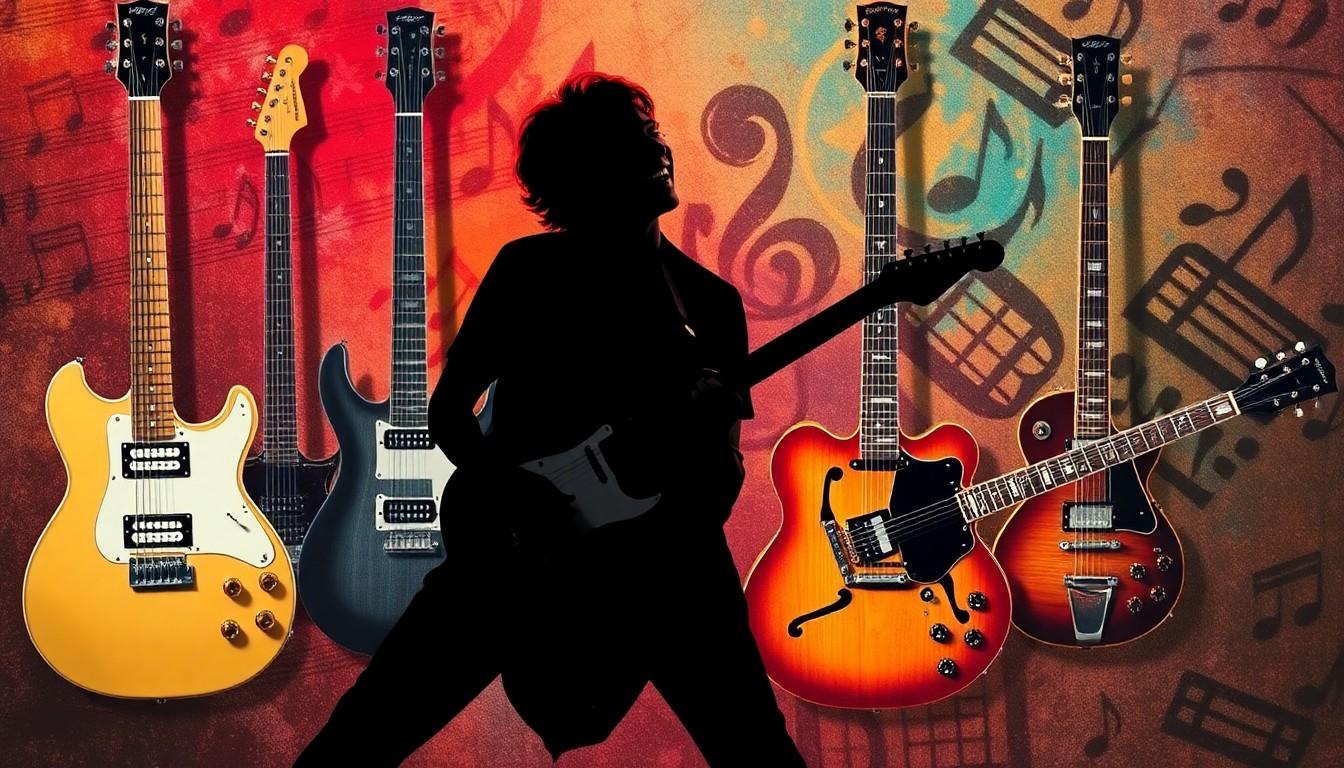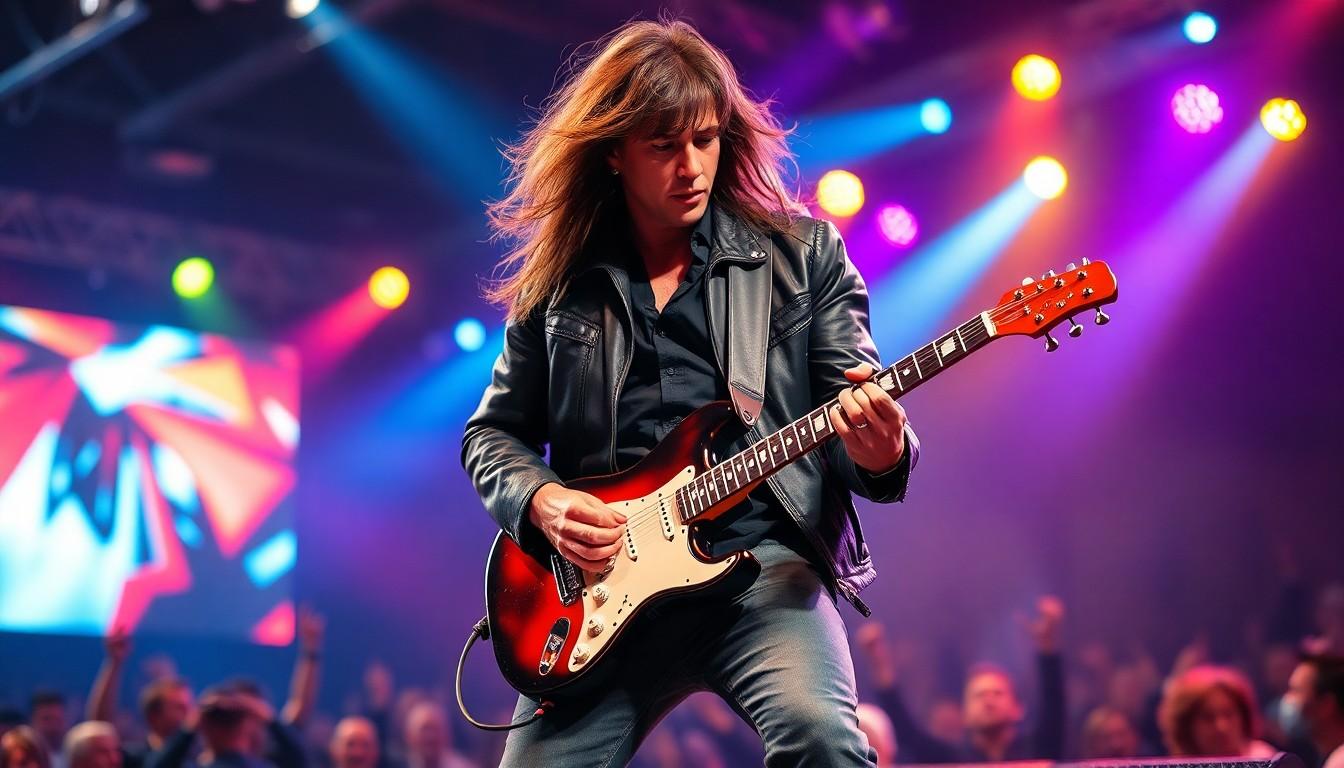The electrifying world of guitar legends has given us countless unforgettable riffs, solos, and performances that have shaped music history. From blues pioneers to rock gods these virtuosos have turned six strings into pure magic captivating audiences across generations.
Whether it’s Jimi Hendrix’s mind-bending psychedelia Eric Clapton’s soulful blues or Eddie Van Halen’s revolutionary tapping technique each guitarist brings their unique flavor to the mix. They’ve pushed boundaries redefined genres and inspired millions of aspiring musicians to pick up the instrument. This definitive list celebrates the axe-wielding heroes who’ve left an indelible mark on popular music transforming the humble guitar into a powerful voice of artistic expression.
100 Greatest Guitarists Of All Time
Guitar virtuosos transformed popular music across distinct eras, each decade introducing innovative techniques and groundbreaking sounds that redefined the instrument’s possibilities.
The Birth of Rock Guitar (1950s-1960s)
Chuck Berry pioneered rock guitar in the 1950s with his signature double-stop riffs and duck walk performances. Electric guitar innovation accelerated through Les Paul’s multitrack recording techniques and custom guitar designs. B.B. King established the foundation of modern lead guitar with his precise string bending and vibrato technique on his Gibson “Lucille.” Surf rock emerged with Dick Dale’s rapid-fire picking and reverb-heavy sound. The British Invasion brought forward Eric Clapton’s blues-influenced style with Cream and The Yardbirds. Jimi Hendrix revolutionized guitar playing in 1967 with controlled feedback, wah-wah effects and unconventional chord voicings on songs like “Purple Haze.”
The Golden Age of Guitar Heroes (1970s-1980s)
Jimmy Page dominated arena stages with Led Zeppelin through his innovative use of alternative tunings and violin bow techniques. Eddie Van Halen introduced tapping to mainstream rock with “Eruption” in 1978, creating a new template for guitar virtuosity. Randy Rhoads combined classical training with heavy metal intensity during his tenure with Ozzy Osbourne. David Gilmour crafted expansive guitar soundscapes with Pink Floyd using melodic solos and innovative effects processing. Kirk Hammett accelerated thrash metal’s evolution through Metallica with rapid alternate picking and wah-pedal mastery. Stevie Ray Vaughan revitalized blues guitar in the 1980s with his powerful Texas blues style mixed with rock elements.
Revolutionary Electric Guitar Pioneers

Electric guitar pioneers transformed the musical landscape through innovative techniques hardware modifications. Their groundbreaking approaches created new sonic possibilities that influenced generations of musicians.
Blues and Rock Innovators
Chuck Berry pioneered rock ‘n’ roll guitar with his signature double-stop bends signature riffs in songs like “Johnny B. Goode” “Roll Over Beethoven”. T-Bone Walker introduced theatrical performance elements sophisticated urban blues phrasing that influenced B.B. King later blues guitarists. Les Paul revolutionized recording technology through multitrack recording inventions created the solid-body electric guitar design. Sister Rosetta Tharpe combined gospel with distorted electric guitar tones inspired early rock guitarists like Elvis Presley Chuck Berry. Link Wray introduced power chords fuzz distortion in his 1958 instrumental “Rumble” laying groundwork for punk metal genres.
Jazz and Fusion Masters
Charlie Christian elevated the electric guitar from rhythm section to lead instrument through his revolutionary bebop solos with Benny Goodman’s orchestra. Wes Montgomery developed his distinctive octave-playing technique influenced jazz guitarists for decades. John McLaughlin fused Eastern music with jazz rock through his work with Mahavishnu Orchestra Miles Davis. Pat Metheny incorporated synthesizer technology new harmonic approaches that expanded jazz guitar possibilities. Django Reinhardt pioneered gypsy jazz despite playing with only two fingers following an injury created complex lead guitar techniques that influenced future generations.
Technical Virtuosos and Speed Demons
Technical virtuosos revolutionized guitar playing through complex techniques, lightning-fast solos and unprecedented precision. These guitarists pushed the boundaries of speed, accuracy and musical innovation across multiple genres.
Metal and Shred Guitar Icons
Yngwie Malmsteen introduced neoclassical shred guitar in the 1980s, combining baroque music with metal techniques. Joe Satriani elevated instrumental rock through his melodic compositions and advanced legato techniques. Steve Vai mastered innovative picking patterns while creating otherworldly sounds through effects processing. Randy Rhoads integrated classical training into heavy metal, pioneering the fusion of classical music with aggressive guitar work. Paul Gilbert developed alternate picking mastery at incredible speeds with mathematical precision. Marty Friedman brought exotic scales and Eastern influences to metal through his work with Megadeth.
Progressive Rock Pioneers
Robert Fripp created layered soundscapes using innovative effects and mathematical precision in King Crimson. Alex Lifeson incorporated complex chord structures and intricate arpeggios throughout Rush’s extensive catalog. Steve Howe blended classical, jazz and rock techniques in Yes through multiple guitar changes and precise fingerpicking. John Petrucci developed progressive metal techniques through Dream Theater’s technically demanding compositions. Adrian Belew explored unconventional sounds by manipulating guitar electronics to create animal noises and industrial effects. Allan Holdsworth pioneered legato techniques and advanced chord theory that influenced generations of guitarists.
Modern Guitar Innovators
Contemporary guitarists continue to redefine the instrument’s possibilities through groundbreaking techniques experimental approaches. These innovators blend traditional methods with modern technology creating entirely new sonic landscapes.
Alternative and Experimental Players
Sonic Youth’s Thurston Moore pioneered alternate tunings creating textural soundscapes through prepared guitars modified with drumsticks objects. Tom Morello of Rage Against the Machine transformed the guitar into a turntable using kill switches toggle techniques producing revolutionary hip-hop-inspired sounds. Radiohead’s Jonny Greenwood integrates electronic elements synthesizers with traditional guitar creating complex atmospheric textures. St. Vincent (Annie Clark) developed a signature angular playing style incorporating intricate rhythms dissonant harmonies. The Mars Volta’s Omar Rodriguez-López combines progressive rock elements with Latin influences creating intense experimental compositions.
Contemporary Guitar Masters
Jack White established himself through raw minimalist blues approaches using basic equipment to create maximum impact. John Mayer combines blues virtuosity with pop sensibilities earning recognition from guitar legends Eric Clapton BB King. Matt Bellamy of Muse incorporates innovative effects built-in synthesizers creating orchestral soundscapes with a single instrument. Derek Trucks mastered slide guitar techniques bringing Indian influences to contemporary blues rock. Gary Clark Jr. blends traditional blues with modern rock hip-hop elements establishing a unique contemporary voice in guitar music.
| Guitarist | Innovation | Signature Technique |
|---|---|---|
| Tom Morello | Kill switch manipulation | DJ-style scratching |
| St. Vincent | Angular playing | Geometric finger patterns |
| Jack White | Minimalist approach | Raw voltage control |
| Derek Trucks | Slide mastery | Indian modal scales |
Genre-Defining Guitarists
Guitar pioneers revolutionized music by creating distinctive sounds that shaped entire genres. These innovative musicians established foundational techniques that influenced generations of players across multiple styles.
Blues and Jazz Legends
B.B. King’s expressive string bending technique created the signature blues guitar sound through his Gibson “Lucille” guitar. T-Bone Walker introduced theatrical performance elements while pioneering electric blues with his fluid single-note solos. Django Reinhardt developed intricate gypsy jazz techniques using just two fingers after a severe hand injury. Wes Montgomery’s distinctive octave playing style influenced jazz guitar methodology through albums like “The Incredible Jazz Guitar.” Charlie Christian transformed jazz guitar from a rhythm instrument to a lead voice through his amplified solos with the Benny Goodman Orchestra.
Rock and Metal Titans
Jimmy Page crafted Led Zeppelin’s signature sound through innovative recording techniques layered with acoustic arrangements. Tony Iommi created heavy metal’s core sound using down-tuned power chords on his Gibson SG. Eddie Van Halen revolutionized rock guitar with his tapping technique on tracks like “Eruption.” Randy Rhoads combined classical training with metal intensity during his tenure with Ozzy Osbourne. Ritchie Blackmore integrated baroque influences into hard rock through Deep Purple’s progressive arrangements. James Hetfield established modern metal rhythm guitar through Metallica’s precise downpicking style. Dave Mustaine developed intricate speed metal riffs characterized by angular chord progressions with Megadeth.
The greatest guitarists of all time have left an indelible mark on music history through their innovation creativity and technical mastery. From the pioneers of blues and rock to modern experimentalists these musical virtuosos have consistently pushed the boundaries of what’s possible with six strings.
Their collective influence extends far beyond their individual achievements shaping entire genres and inspiring countless musicians to pick up the instrument. As guitar music continues to evolve new talents emerge building upon this rich legacy while forging their own unique paths.
These 100 legendary guitarists represent not just technical excellence but the transformative power of musical expression. Their contributions continue to resonate through generations proving that the guitar remains one of music’s most versatile and expressive instruments.

